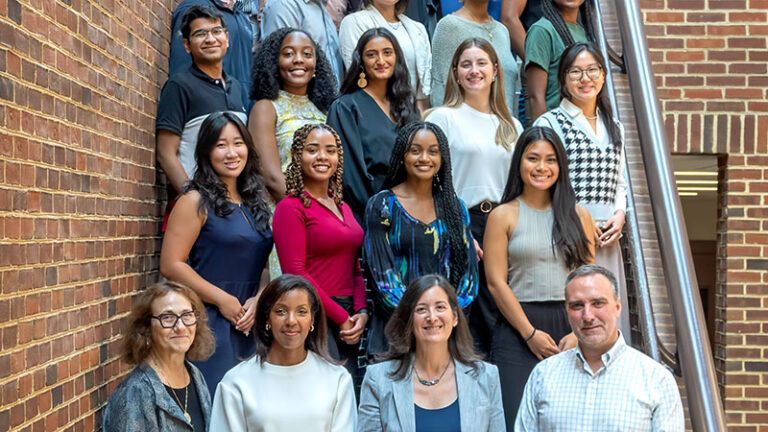[ad_1]

Twenty-five years after it was established as a joint Leonard Davis Institute of Health Economics and Wharton School Health Care Management Department program aimed at attracting students interested in health disparities research into advanced health care degree studies, the Summer Undergraduate Mentored Research (SUMR) program ended its quarter-century anniversary year with a week-long seminar spotlighting the scholar’s projects.
A Quarter Century
“Looking back 25 years since Mark Pauly and I began this as a program that we hoped would work, it’s still amazing to me to see how much it has grown and how many of its participants have gone on to incredible careers in health care. I can’t say enough about how enriching it has been to have had the support of the Wharton School, LDI, and hundreds of Penn faculty members who devote so much of their time and energy to mentoring these students,” said Joanne Levy, Founding Director of the SUMR Program, LDI Director of Student Initiatives, and Associate Director of Wharton’s PhD Program in Health Economics.
The SUMR program includes ten scholars from its offshoot program Get Experience in Aging Research Undergraduate program (GEAR UP), and an additional two students from the Penn LDI Dental Summer Health Services Research Fellowship program.
Health Disparities Research
Scholars are mostly undergraduates from universities and colleges across the country who are immersed in a special health care management curriculum and paired with Penn faculty mentors on real research projects. This year, 40 students from 26 schools are involved in research focused heavily on health and health care disparities and advancing the needs of underrepresented groups in health services, population health, and clinical epidemiology. Along with hands-on research, the summer-long program also includes an intense curriculum of lectures by some of the country’s top health services research professors.
At the end, in a five-day marathon of presentations before an auditorium audience of parents and faculty members, each of the 40 scholars deliver a scientific report on the research they were engaged in during the summer. The topics include a broad range of studies such as “Understanding the Association Between Cash Transfer Programs and Health Outcomes in Low- and Middle-Income Countries,” “The Racial and Ethnic Disparity in Genetic Research Databases,” “The Effects of Transitional Housing Programs on Health and Economic Outcomes Among People with HIV: A Systematic Review,” and “Addressing Health-Related Social Needs (HRSN) Screening Processes in the Inpatient Setting: Challenges, Opportunities, and Lessons.”
More LDI News

How A Nonprofit’s Closure Could Harm Children’s Health and Threaten Many Families’ Finances
The Sudden Shutdown of Benefits Data Trust Is a Wakeup Call For Philly and Beyond, LDI Experts Write

Penn, Harvard and Columbia All Chose Doctors To Lead Anxious Campuses
LDI Senior Fellow Guy David Has Taught Leadership To Over 2,000 Clinicians. He Lays Out Why Doctors Can Make Great Leaders In a Stat News Op-Ed

Salt Reduction Works. The FDA Should Be Allowed To Set Tougher Limits, LDI Experts Say
Reduction Limits Save Lives and Money, and Even Food Firms Back Them. So Why Doesn’t Congress Act?

Nurses Faced More Challenges Providing Care in Black-Serving Hospitals During the Pandemic
The Challenges Created Disparities That Warrant Urgent Attention

Why Federal LIHEAP Benefits Should Expand To Pay For Cooling
Extreme Heat Will Hit People With Chronic Illnesses The Hardest. They Will Need Cooling Along With Their Medicines

Heart Patients Exercised More by Using Games and Incentives To Maintain Money, New Study Showed
Behavioral Interventions Can Boost Physical Activity and Promote Cardiovascular Health
[ad_2]
This article was originally published by a ldi.upenn.edu . Read the Original article here. .


